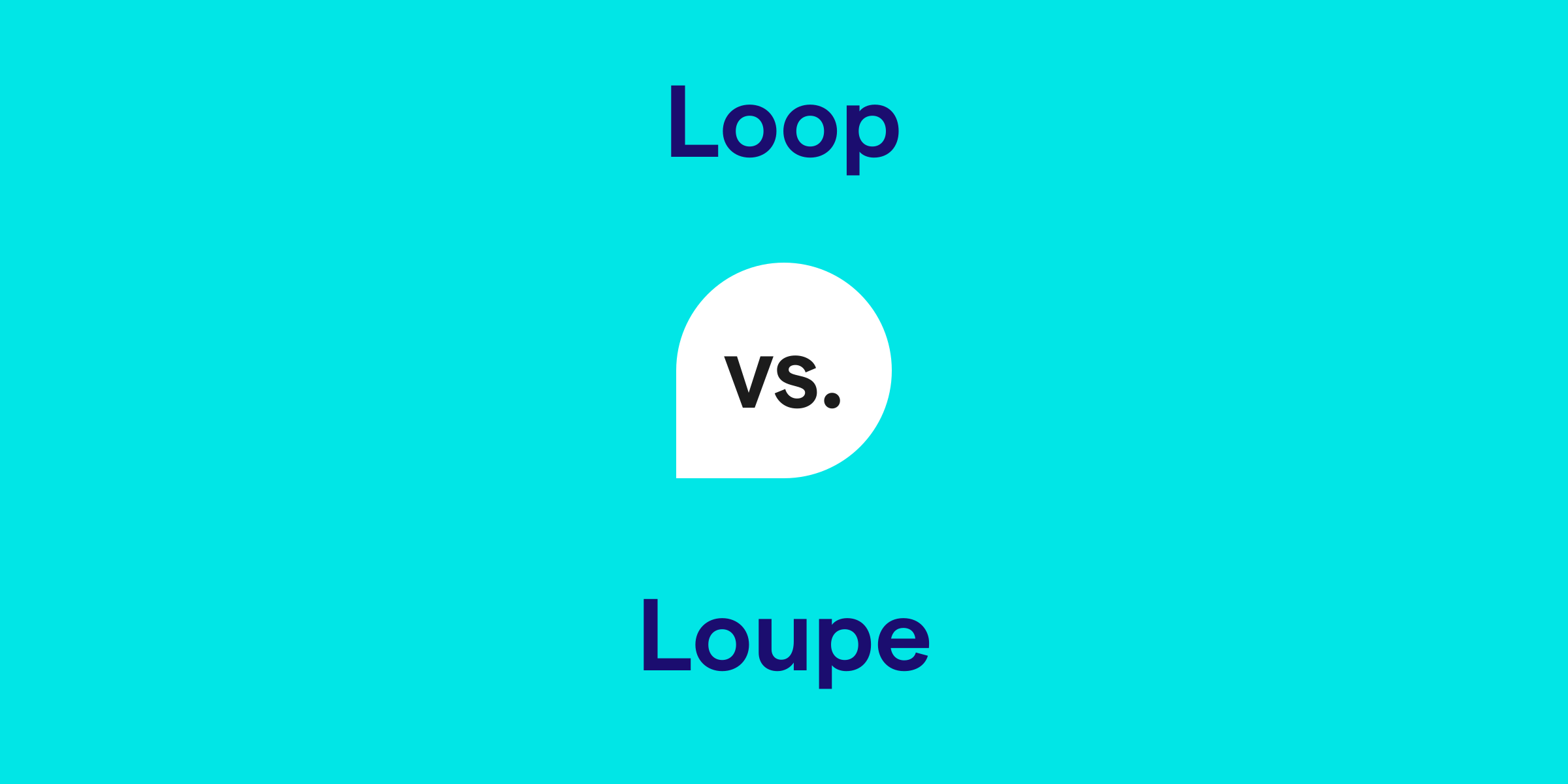Loop vs. Loupe: What's the Difference?
Understanding the difference between a loop and a loupe is essential for clarity in various contexts. A loop refers to a shape produced by a curve that bends around and crosses itself, or a structure, series, or process that is circular or repeats itself. It's commonly used in contexts of programming, crafts, and general descriptions of circular forms. A loupe, on the other hand, is a small magnifying glass used by jewelers, watchmakers, and other professionals working with fine details to magnify objects for closer inspection.

How do you use the word loop in a sentence?
The word loop is typically used to describe something that follows a curved or circular path that eventually crosses over itself. It can refer to physical objects like knots and roller coasters, or conceptual ideas like feedback loops in systems. In programming, loop denotes a sequence of instructions that repeats until a certain condition is met.
Examples of loop in a sentence
- The roller coaster had a thrilling vertical loop that made everyone scream.
- In your knitting pattern, make sure you cast on a long enough stitch loop to create a loose scarf.
- The computer program got stuck in an infinite loop and had to be terminated.
How do you use the word loupe in a sentence?
The word loupe is used to name a specialized tool for magnification, commonly implemented by individuals who work with fine details. Jewelers, geologists, and stamp collectors are good examples of professionals who frequently use loupes to see small details that are not discernible to the naked eye.
Examples of loupe in a sentence
- The jeweler pulled out her loupe to inspect the diamond for any imperfections.
- During the biology lab, students used a loupe to observe the details of insect wings.
- Collectors often use a loupe to examine rare stamps for signs of tampering or damage.
Loop and loupe definition, parts of speech, and pronunciation
Loop definition:
A loop is a noun referring to a shape or a line that bends around and crosses itself, or to a sequence that repeats. As a verb, it means to form such a shape or to take a circuitous path.
Loop parts of speech:
Loop pronunciation:
Loop is pronounced as /luːp/.
Loupe definition:
A loupe is a noun denoting a small magnifying device used by jewelers and watchmakers, designed to be held up to the eye for examining small details closely.
Loupe parts of speech:
Loupe pronunciation:
Loupe is pronounced as /luːp/ or /lʊp/, with slight variations in different English-speaking regions.
A loop is a noun referring to a shape or a line that bends around and crosses itself, or to a sequence that repeats. As a verb, it means to form such a shape or to take a circuitous path.
Loop parts of speech:
- As a noun: 'The artist drew an intricate series of loops on the canvas.'
- As a verb: 'When you loop the rope over the branch, make sure it's secure.'
Loop pronunciation:
Loop is pronounced as /luːp/.
Loupe definition:
A loupe is a noun denoting a small magnifying device used by jewelers and watchmakers, designed to be held up to the eye for examining small details closely.
Loupe parts of speech:
- As a noun: 'She used a loupe to look for inclusions in the gemstone.'
- *There is no common verb form of loupe as it's primarily used as a noun.
Loupe pronunciation:
Loupe is pronounced as /luːp/ or /lʊp/, with slight variations in different English-speaking regions.
Loop vs. loupe in a nutshell
In summary, a loop is a term that can refer to both a physical shape and a process or sequence that repeats. It is used as both a noun and a verb. A loupe, on the other hand, is a specialized magnifying tool, used primarily as a noun, to assist with detailed work. Despite their pronounced similarities, these words have distinct meanings and applications in various fields from crafting to precision workmanship.
Get AI Writing Assistance Wherever You Type
Make sure your vocabulary is on point and every punctuation mark is in the right place, no matter where you’re working. Grammarly works across more than 1 million websites and apps so you can improve your writing without copying, pasting, or breaking focus.

More Commonly Confused Words
Interest piqued? Pore (not pour) over other commonly confused words to help your writing reach peak (not peek) performance.